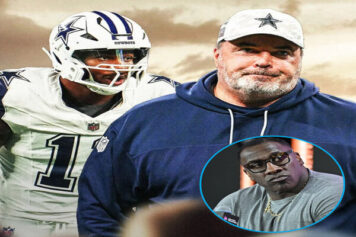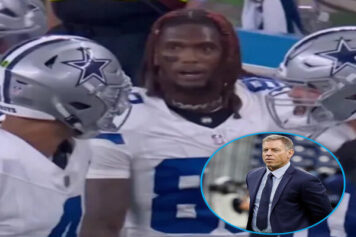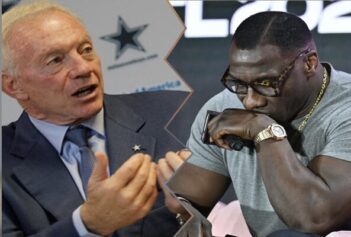Black versus Black is always a big time seller in the media.
No matter whether or not a particular outlet has a left or right wing slant, it always is “big” news when a black celebrity or athlete comes out to point the finger at other black people for their own conditions. In the past, TBS and TNT commentator Charles Barkley has said a myriad of comments regarding black cultural influences being the cause of black oppression and not white folks. Most recently, Sage Steele has been on that same train as well, but those are just the very tip of the iceberg.
Though the mainstream is still fuming over the protest of Colin Kaepernick, It seems that African-American sports heroes are fast becoming the mouthpiece of conservative ideology in America over the past decade. Dallas Cowboys star WR Dez Bryant has been in his fair share of negro shenanigans over the years.
In 2012 he was accused of assaulting his own mother, has fought several teammates in training camp and was at one time considered so immature that he was given a chaperone by Cowboys management and even a curfew.
CB Josh Norman accused Bryant of threatening to shoot him prior to an on field altercation last season. So, as far as Bryant is concerned, the only thing that he should be making headlines for is catching footballs. I have often argued that, because of the dearth of spokespersons for Blackness in American society, athletes should speak on issues of race and race relations. However, I have since amended those editorial musings.
We had to concede that individuals who truly aren’t studied or empathetic enough to properly articulate these points without providing fodder for sniveling, conniving racists should simply stick to what they know. But the cat is already out of the bag as far as that’s concerned. In imploring Black athletes to speak on issues of race and class in America for decades we have also empowered unqualified and unlearned individuals to step into the void.
This is problematic. In my opinion, in basketball it is more likely for a player to have black mentors, and be schooled in some semblance of a black world view, than it is in football. However, as Mr. Barkley has shown us in the past, there are plenty of basketball players willing to espouse halfbaked racial comments. Baseball isn’t immune to this either.
Remember when Dusty Baker, a legendary black Major League Baseball manager, said Black and Hispanic players are better in the outfield than whites because of their skin color in 2003? Or how about when he said the Nationals need more Black players and that Latino players need to get faster in 2015. Baker’s comments were fairly ambiguous considering his age, and at least he stuck to baseball. He is a product of his experiences. He’s 67-years-old.
However, when race is mentioned in modern professional sports, the closest thing to a meritocracy America has, it is always a red flag. And, no matter how outraged a group of minorities are, these assertions always project onto the screen of mainstream approval.
As is often coined in editorial meetings across the country, “perspective matters.” So, Dez Bryant’s recent comments blaming Blacks for their own degradation should be examined in that context. It matters to point out the life he has lived, his road out of the circumstances, and who his benefactors have been throughout his life.
(Photo Credit: Getty Images)
Born in poverty in Luftkin, Texas, Dez has witnessed all manner of crime and debauchery committed by Black people against other Black people. I don’t want to belabor this point for any other reason but to illustrate the ocular range of a young man whose tortured and trouble early life only became better when he started playing football.
For Bryant, his saviors were indeed white. I do not mean that in any derogatory or disparaging way. It is a simple matter of fact. Conversely, from those same eyes darts the judgement of an individual whose demons were presented to him by Black people, some of which may have been family members. Although he is wrong by leagues and leagues, as NFL Hall of Famer Shannon Sharpe so eloquently pointed out, it is somewhat understandable that he would take this point of view.




